Interview: Lulu Wang on 'The Farewell' and why it's important to declare she's American
 Wednesday, July 10, 2019 at 11:59PM
Wednesday, July 10, 2019 at 11:59PM
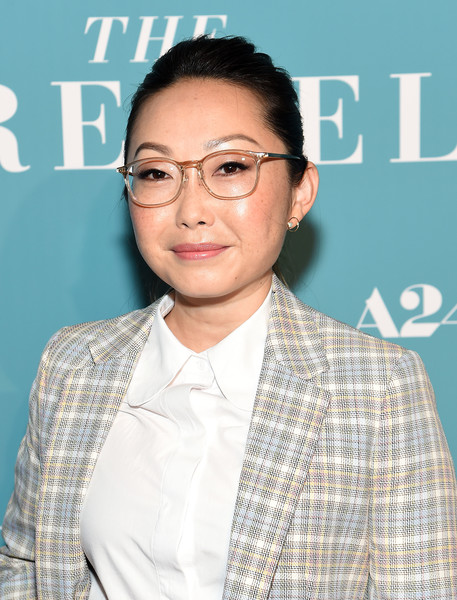
When I meet Lulu Wang at the A24 offices in Manhattan, she looks really cool despite the hot weather and despite the fact that she has “not been part of the world since January because I've just been traveling.” Perhaps it’s the effect of Headspace, the meditation app she uses. “It has all of these five or ten minute meditations. I listen to in the car ride between going to screenings. It just helps me breathe.”
January was when her second feature film as a writer and director, The Farewell, premiered at Sundance to ecstatic reviews, including one from this writer. Since then Wang has been flying around the world as the film played at many other film festivals. Wang has drawn on her own family’s history to tell a warm, funny and poignant tale about a young Queens artist, Billi (played by Awkwafina), and the tender relationship she has with her grandmother, whom she calls Nai Nai or "grandma" in Mandarin, and who lives in Changchun, China. When Nai Nai (Zhao Shuzhen) receives a terminal cancer diagnosis, the family decides to hide the news from her and instead concocts a scheme to marry off a cousin, so that they have an excuse to gather around the grandmother one more time before she goes. This lie doesn’t sit well with Billi and the film shows us the friction and love as the family grapples with this. This interview has been edited and condensed for clarity.
Murtada Elfadl: There were reports last week that you turned down a big payday from a streamer and chose to go with a theatrical release. Why is that important to you?
Lulu Wang: First of all, it's not just any theatrical, it's A24 theatrical. They really understand how to engage in cultural conversation with a film. It wasn't about a cinema screen versus a TV screen. It wasn't about the technicality of a projector versus digital. It's about the communal experience. I've been doing the festival circuit and I'm seeing the film with a community of people in a room, there's nothing like it. This communal grief of the loss that we all deal with. And to be in a room and experience that is very different than being in your living room, watching it yourself, pausing to go pick up the phone. There's just something magical.
But that's not why I made the decision I made. It was really because it's only when you have a theatrical release that the distributor will put money behind promoting the film in the way that A24 has. From the ground up, there's this sort of grassroots reach to communities, the Asian American community, Chinatowns all over the country. They've reached out to AARP, retirement communities. They think very much about all of these different communities, how to reach all of them and introduce the film to them as opposed to relying on an existing subscriber list. This distributor, if they're going to pay money to distribute it, then that means they also have to invest to market it correctly. And that's important as a conversation piece. It's important for this film.
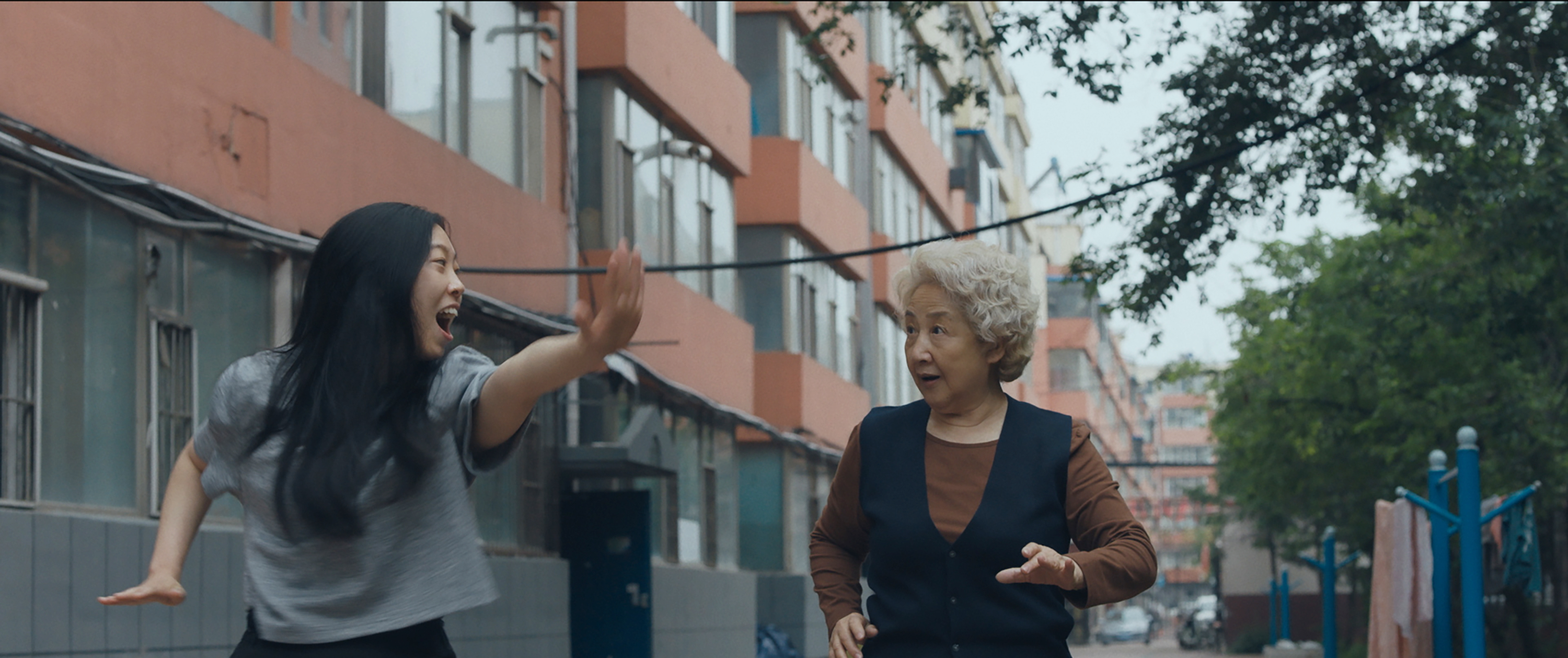
This story is personal to you. Was it hard to be vulnerable and honest about your own and your family’s story?
Yes and no. It was challenging to figure out what to include and what not to include. But in many ways the film was therapy for me and I think I sort of had to convince myself that no one's going to see it. That's what my parents would say (laughs). You've made films before, they don't go anywhere. So they said do your thing, you're getting paid, right? If you can pay your bills then that's fine. So that's kind of how I looked at it. This company is giving me a chance to do this. This may be the last time I make a movie for all I know. Every film could be your last because it's so expensive. And I said to myself, I just have to make what I believe is a truthful and honest film, an authentic film. And I have to put my all into it. To be honest, I was ready to quit the film industry. I thought, if I quit and I haven't done everything I can, then I'll regret it. But if I put everything I have into this film. If I push myself to be as vulnerable as I can, as honest as I can, as authentic as I can. Then if the film doesn't do well, I can say for sure that that's not the right place for me to tell stories. That maybe it's just costs too much money, it takes too much risk and I should go tell stories elsewhere.
Besides giving you the go ahead if you're getting paid, how did your family react to how they're portrayed in the film?
Oh, they all have opinions. Everyone's like, what about this, what about that? And so part of the negotiation of making the film was also figuring out when was it important to be respectful and listen to their opinions and when was it important for me to stand on my own and say, this is my film, this is my perspective, this is how I feel. If my parents made it or anyone else in the family made the movie, they would have a very different perspective probably. But I also had to sort of fight to say I am an extension of the family, but I am also an independent artist and I'm allowed to portray how I felt during this experience. The way I told the story was truthful to me. It was difficult though, coming from an Asian immigrant family, I always want to appease them and make sure I'm doing right by them.
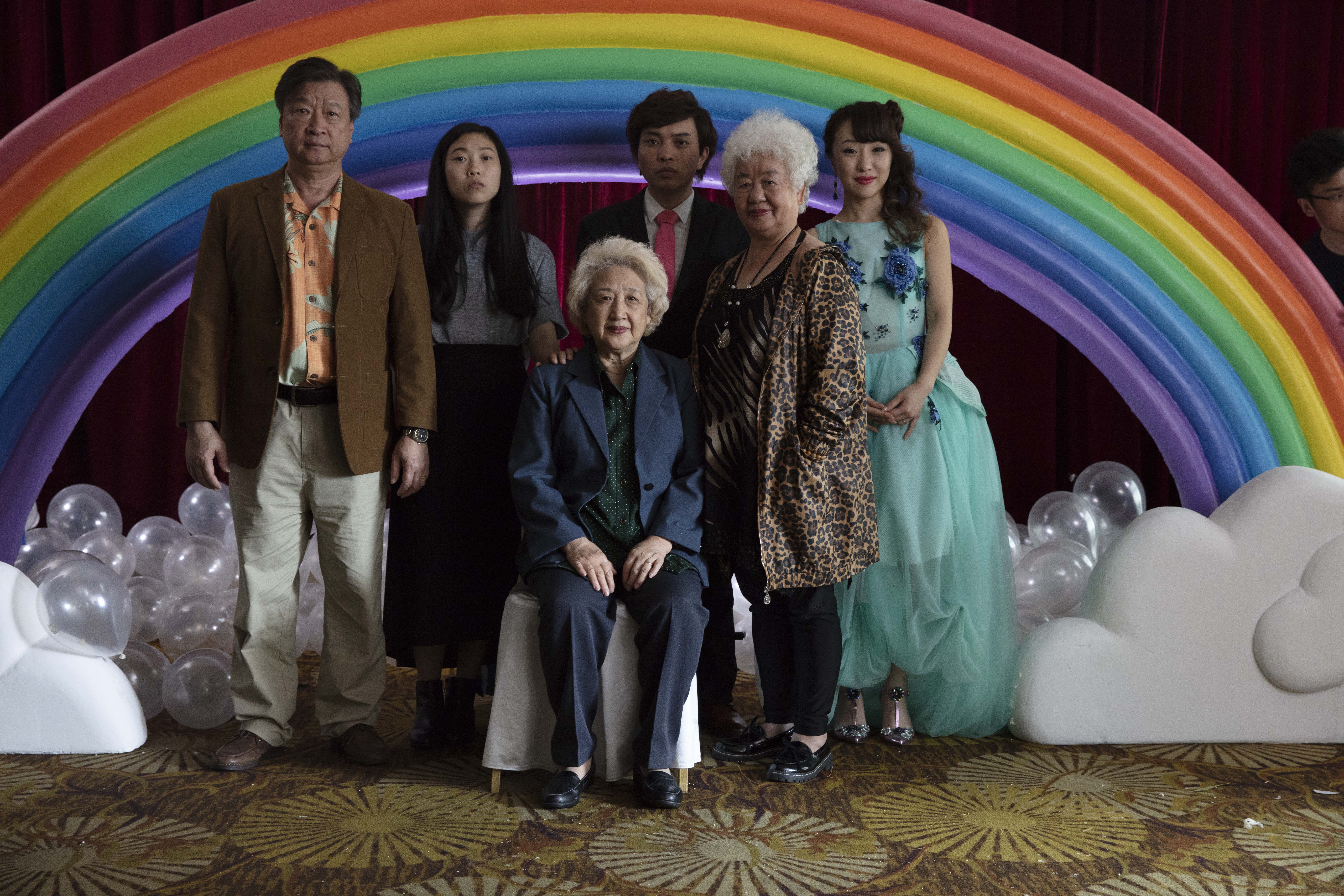
You mentioned coming from an immigrant family. We are living in this very anti immigrant climate now, so do you feel a responsibility as an artist to tell immigrant stories in a certain way?
Yes definitely. It is such a crazy time right now and to think that my family immigrated here 30 years ago when the way that we looked at immigrants and immigration was very, very different. The value of immigrants was portrayed in a very different way. So with everything going on politically, it's important for me now more than ever to embrace in an unapologetic way my Americanness. Because if I don't do it in a proud and public way, a visual way, then other people are not doing that for me. Certainly not the mainstream. They're not gonna look at me and go she's American. And so I think that is a political statement; to say I'm American.
This is an American movie and it involves Chinese, Asian Americans and people who don't always speak English. But that doesn't mean that it is not American. That they are not American. I'm hoping that that sets into motion more stories being told that actually reflect the landscape of what this country actually looks like. It's so crazy when I travel abroad and I tell people that I'm American. And they say but you don't look American. That happens to me in China. You think of all the people who shouldn't be racist. They go you don't look American, but you don't sound Chinese either. And I think that their idea of what American is comes from the media. That's what their access point is. And I am part of the media and so I have to change that perception.
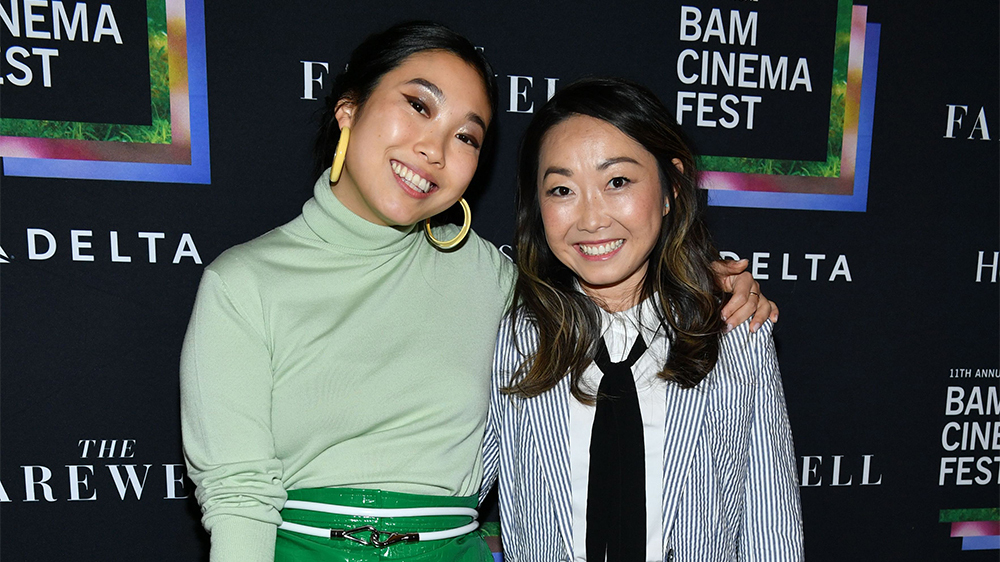
I was at your Sundance premiere and I left convinced you’ll win the audience award. I have a theory about why you didn’t. Are you nervous that that might limit how far your film goes?
I don't think that I'm nervous about it because in some ways the film has already exceeded all of my expectations. I'm dying to hear your theory.
My theory is that American audiences have shown a resistance to non-English language films and so they didn't vote for The Farewell at Sundance.
Yeah, but we won the audience award in the UK. That to me was amazing because even though I've never lived in the UK, a lot of my influences actually come from British culture. Northern European culture is one of my huge directorial influences. I love British comedy. And so if I can make a film that resonates with people living in London, then that's awesome.
To me the essence of your film is very American yet the chatter at Sundance was people asking if it was Chinese? I heard a lot of that and it confirmed a bias to me when you didn’t win the audience award, just because it’s not entirely in English.
Yeah. And I really think it's unfortunate in this country, if people do limit themselves because they're missing out on so much of the world. I mean in America we think of ourselves as the number one country in the world or whatever. And yet sometimes I often think that we're the most sheltered, most puritanical, and that is really sad. We would benefit greatly as a nation if we were actually more global.
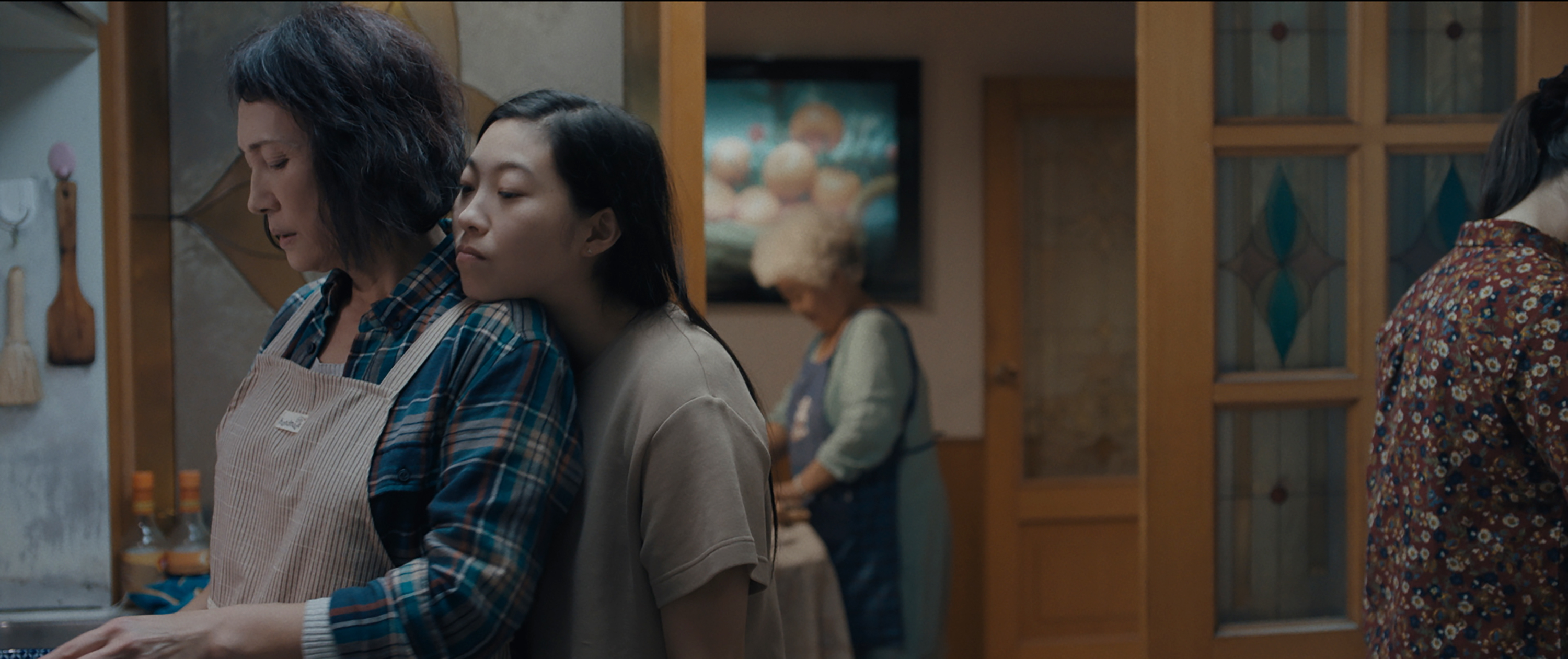
The film is very funny but also tragic, how did you mix and straddle these opposing tones?
Well, that's what my experience was often. It was very sad and very funny at the same time. And it's the sense of humor that my family has. We always find the humor in tragedy and in these ridiculous situations. Before I started out to make the film, everyone always says find your voice as an artist. I never knew what that meant. I didn't know how do you literally go find your voice, right? What exercise do I do? What books do I read? But I always knew that humor was a big part of my voice, but not in the sense that I'm going to make comedies for the rest of my life, but that no matter what story I tell, it's going to have humor. I'm learning things about myself because both in Posthumous, my first feature and this movie, the actors after they saw the film for the first time were shocked to find out it's a comedy. It's really funny because the actors themselves when they read the script and when they were on set didn't realize that. I'm not directing them and I haven't written the script as a comedy. I find the humor in other ways.
My favourite scene in the film is the one in the restaurant. The whole family comes together from different parts of the world. China, Japan, the US. I love that you show the different dynamics, agendas and tensions. Can you talk about that?
It was a very difficult scene, probably the hardest scene to edit. And also to write because it was very long when I first wrote it and anytime we wanted to cut something, we would say well this scene is long so cut it. But in some ways you need the length to build the dynamics in this conversation. That's the lynch pin scene of the whole movie because it helps you understand everybody better and where they're coming from and their own heartbreaks. We had very limited time to shoot it so we actually didn't do close ups on anybody. We covered everybody, you know in the three shot and then we would just move the camera around. I set it that way because part of the dynamic of the scene is that it's about the unit, the family as a collective. So nobody gets to have their own shot in the face. The only person who actually got a single was Nai Nai, because she is the matriarch and the center. Everybody else is just part of this three shot. It was challenging because there's also food continuity. There's a lot dialogue and so we just went around the table and shot everybody.
The Farewell opens in LA and New York this weekend.



Reader Comments (5)
Love this! It seems like you two had a good rapport. Her point about finding her voice is fascinating. Especially how she mentions that her actors would be surprised after seeing the films that they are comedies, as she doesn't necessarily write them as traditional comedies, but finds the humor in other ways.
Can't wait till this finally gets to my city.
It’s so weird to me that you guys release these interviews while films are still on the circuit. Wouldn’t it make sense to hold onto them after they release wide or even later during peak Oscar season? Like the interview is cool, but without context it’s meaningless. I’m sure more people would read and comment as well.
What Max said. And great interview, Murtada. I now wanna be besties with Lulu!
يُنظّف الخل الأبيض أرضيات البورسلان ويُطهّرها، كما يُزيل الروائح الكريهة العالقة به، ويعتبر هذا المحلول المُزيل للبقع خياراً احترافيّاً مُناسباً لتنظيف مُختلف أنواع البورسلان المصقول منه، والمُزجج، ويُستخدم ببساطة باتباع الخطوات الآتية: يُصنع محلول بإضافة 1/2 كوب من الخل الأبيض إلى 3.75 لتر من الماء الدافئ وخلطهما معاً. تُشطف أرضيّة البورسلان المُراد تنظيفها بالمحلول السابق. تُمسح الأرضيّة بمحلول الخل والماء مُجدّداً؛ لتطهيرها وتنظيفها وتخليصها من الروائح المُزعجة العالقة بها. تُجفف الأرضيّة بعد الانتهاء من تنظيفها بشكلٍ جيّد.
هُنالك بعض النصائح التي يوصى باتباعها للحفاظ على أرضيّات البلاط بغضّ النظر عن نوعها، وهي: تكنيس البلاط بشكلٍ مُنتظم والعناية به وإزالة الغبار والأوساخ السطحيّة التي قد تعلق به باستخدام المكنسة الكهربائية. تجنّب استخدام مُلمّعات الشمع على الأرضيات المُختلفة؛ لأنه سيجعلها زلقةً وقد يتسبب بحوادث وأضرار عند السير عليها. مسح وتنظيف البقع والانسكابات عن البلاط الخزفي فور حدوثها؛ حتى لا تعلق به ويصعب إزالتها لاحقاً، ويُمكن بَلّ قطعة قماش بالماء الساخن وتنظيفها بواسطتها، لكن دون استخدام الليف السلكية التي قد تُسبب خطوط من الصدأ في البلاط. تجنّب استخدام مواد التبييض أو الأمونيا القاسيّة على البلاط،إضافةً لعدم استخدام المُنظّفات والملوّنات على البورسلان، خاصةً غير المطليّ منه؛ لأنها قد تُسبب تصبّغه وتلطّخه بفعلها.
شركة تنظيف منازل